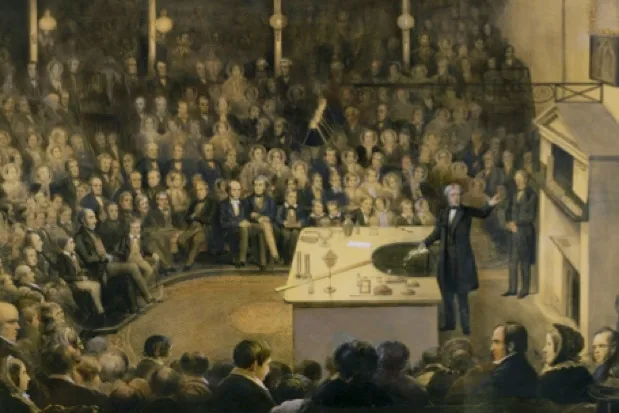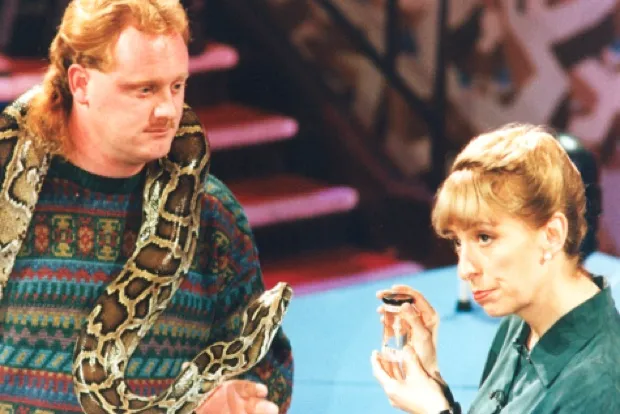1825 - John Millington
The idea to hold Christmas Lectures came from Michael Faraday, but he didn’t present the first series. That honour belonged to John Millington, Professor of Mechanics at the Royal Institution. The subject was ‘natural philosophy’, better known today as science.
1848 - Michael Faraday
A hugely popular speaker, Faraday presented 19 series. A transcript of his 1848 lectures,The Chemical History Of A Candle, became one of the most successful popular science books of all time.

1881 - Robert Stawell Ball
A professional astronomer and author, Stawell Ball presented ‘The Sun, The Moon And The Planets’ in 1881 - the first of his five Christmas Lectures. Ball’s skill as a lecturer made him a wealthy man, earning him fees from talks all over Britain, Ireland and the USA.
1966 - Eric R Laithwaite
Laithwaite’s series, ‘The Engineer In Wonderland’, was the first to be broadcast on TV. Shown on BBC Two for over 30 years, the series has been on BBC Four since 2010.
1973 - David Attenborough
Attenborough was controller of BBC Two when the Lectures were first televised. In 1973 he’d returned to broadcasting.Attenborough’s six lectures on The Language Of Animals shattered the cardinal rule of showbiz, “never work with animals or children”. Among the creatures on show were a praying mantis, a ring-tailed lemur and an impossibly cute baby orangutan.

1977 - Carl Sagan
In possibly the most iconic lectures of all, Sagan discussed our place in the Solar System and the game-changing discoveries made by the Mariner 9 and Viking missions to Mars. It was a fertile time for space exploration, with the twin Voyager spacecraft launched just a few months earlier.
1991 - Richard Dawkins
Famous for his bookThe Selfish Gene, Dawkins tackled evolution in his enthralling series ‘Growing Up In The Universe’. He could also boast a celebrity guest – author Douglas Adams made a brief appearance standing on a pair of scales.
1994 - Susan Greenfield
After 169 years, neuroscientist Greenfield was the first woman to present the lectures.

2009- Sue Hartley
The botanical world was brought memorably to life by Hartley, with chocolate fountains, giant marrows and mouth-burning chillis all helping to demonstrate the ways in which plants cling to survival, and how we’ve manipulated plants to suit our own needs.
Follow Science Focus onTwitter,Facebook, Instagramand Flipboard